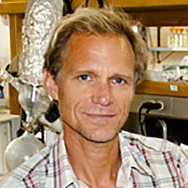Microbial natural products remain an important source of lead compounds for drug discovery. Traditional approaches to microbial natural product discovery take a microbe first approach in which individual strains are cultured in the lab and bioassays used to guide the isolation of active compounds. While once productive, the limitations to this approach are now well documented and include the recognition that only a small percentage of the bacteria present in the environment are readily obtained in culture. We have developed a new approach to microbial natural product discovery in which compounds are isolated directly from the environments in which they are produced thus bypassing the initial need for laboratory cultivation. This culture independent approach, which we call Small Molecule In Situ Resin Capture (SMIRC), is agnostic to the biological source of the compounds and requires no up-front knowledge of cultivation requirements or the cues needed to induce biosynthesis. Initial SMIRC deployments have yielded extensive, biome specific chemical diversity including compounds previously reported from marine plants, invertebrates, and bacteria. Mining compounds that could not be identified has yielded unprecedented carbon skeletons and demonstrated that sufficient yields can be obtained for bioactivity testing and NMR-based structure elucidation. These results suggest a path forward to access new chemical space for drug discovery and to address the ecological functions of marine natural products.
Tsujimoto Lecture: Changing Paradigms in Natural Product Discovery: A Molecule to Microbe Approach

About this event

